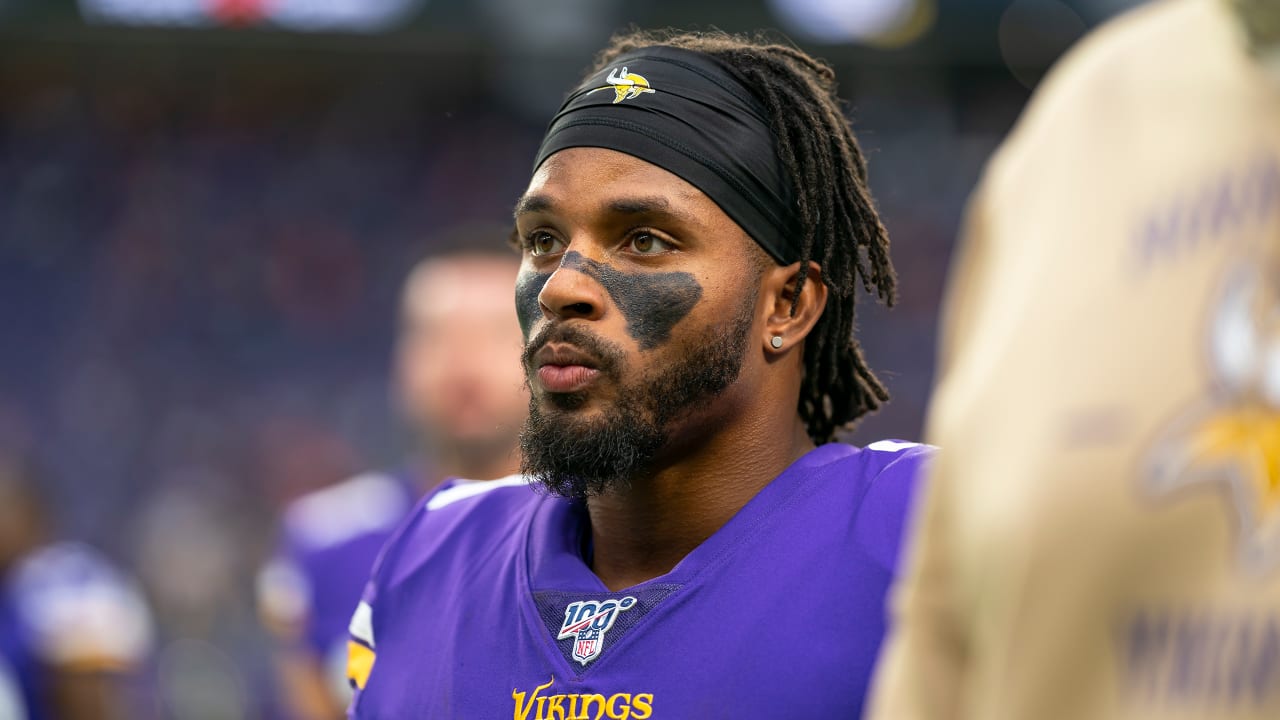Viktor
Well-known member
- Mar 19, 2019
- 2,552
- 0

The Vikings have discussed Floyd's death and social injustices in team meetings. Members of the team's Social Justice Committee have met frequently as a group and with people beyond the Vikings, including Minneapolis Police Chief Medaria Arradondo and three other officers this past Saturday.
On Wednesday, Chief Operating Officer Andrew Miller, General Manager Rick Spielman, Co-Defensive Coordinator Andre Patterson, Ameer Abdullah, Anthony Harris and Eric Kendricks participated in a forthright video conference with members of the media to explain the recent weeks, the mindset of the team and the goal of helping implement significant and lasting changes.
Paraphrasing a question by ESPN's Courtney Cronin, Abdullah was asked if this round of protests feels different and will be more effective than previous quests for social justice.
Abdullah, whose father participated in the Civil Rights march from Selma to Montgomery in 1965, said no, then yes.
"From a personal level, no? That's because I am a black American," said Abdullah, whose T-shirt read PEACE. "These are things I've known and always understood, but from my peer groups around me, some of my Caucasian friends, it does feel different."
Abdullah pointed out that COVID-19's stoppage of most sports has created an environment with fewer distractions.
"There's so many things going on that a lot of people can't always consolidate their attention to the things that don't always concern them, and it's not to say they're at fault because of that or they're bad people, necessarily, because of that," Abdullah said. "It's just so much information out there that a lot of us can't hone in and realize, 'Someone else is being disenfranchised that looks different than me. And maybe I haven't done the thorough research or education on that.'
"But I always say I'm thankful for 2020 because everyone's had a chance to just sit down at home and watch from the outside what's going on, and these types of incidents are under the biggest of microscopes," he continued. "And now it's like, 'Whoa, it's a big division. The people who stand for it are standing for it. The people who stand against it are standing against it.' It really separates everyone's intentions, and then you can move forward with a lot of people who are willing to step in and be leaders and to evoke change. Which I think is important because sometimes this can become too much of a white-and-black issue. This is a human issue. This is a humanitarian issue."
Without those distractions, Abdullah said "people are seeing a lot clearer right now."
Patterson, who will turn 60 on Friday, was able to add an extra generation of experience to the conversation. Born in Arkansas, Patterson grew up in California from age 2. He experienced a South that was segregated by laws during family visits, as well as exposure to racism on the West Coast.
Patterson said he believes the widespread availability of the gut-wrenching video of Floyd's death "changed everything."
"I just want to piggyback real quick on Courtney's question," Patterson said. "I think Ameer did a great job answering it, but I'm a child of the '60s, OK? So this has been going on my whole life. And Courtney's question was, 'Is this one different?'
"I'm going to say it's different, and here's why it's different: Because through time, the black community has been telling the world that this has been going on. And a lot of people didn't want to believe that it was going on, that the person had to do something wrong to either get choked to death, or shot, or whatever. OK? But this is the reason why this one's different: Because the whole world got to see life leave that man's body.
"Not only did they get to see him lose his life – they got to see it from start to finish. So that's why you see the protests the way you do," Patterson said. "That's why you see a wide volume of people out there protesting – it's not just black people out there. It's not just in the United States. Because the whole world got to see that it's true. So for me, this time, it's different … because everyone's had an opportunity to see that this is real."
Abdullah believes there's "a lot of different levels of reform that need to take place."
"But before we can liberate ourselves from systems or reform systems, we have to reform ourselves internally," Abdullah said. "You can't just put a Band-Aid on wounds that are wide-open, and I think it's more of a psychological war that a lot of us aren't really realizing, that are passed down through our lineage and hereditary stories, from families, and until we have open discussion – one thing I know we talked about internally was maybe hosting [through] our space with the Vikings, maybe our auditorium, to bring in officials, people from all walks of the community, to talk about these issues. To unclothe a lot of the internal things. Because who we are externally as people is predicated on who we are inside.
"And no matter how much you try to put paint over rusted metal, that rust is always going to burn through that paint, eventually," Abdullah continued. "So we have to heal from the internal before we can really talk about reform."
